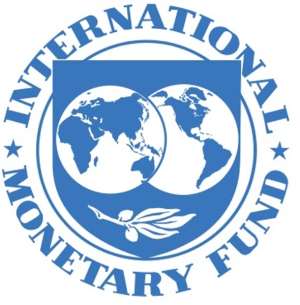
ADDIS ABABA, Ethiopia, October 31, 2014/African Press Organization (APO)/ -- Peter Maurer, president of the International Committee of the Red Cross (ICRC), today concluded a three-day visit to Ethiopia, during which he held talks with African Union (AU) and Ethiopian leaders and with representatives of the Ethiopian Red Cross Society. The humanitarian situation in countries suffering the effects of armed conflict or other violence, such as South Sudan, the Central African Republic, Somalia, Libya and Mali, and the Ebola outbreak in West Africa were among the main topics of discussion.
On the occasion of his third visit to the AU, Mr Maurer updated the members of the Peace and Security Council on the ongoing cooperation between the AU and the ICRC and on the challenges faced by his organization.
"If neutral and independent humanitarian organizations cannot reach a conflict- or violence-affected area, the people who most need help will be left without any at all," he said. "It is critically important that the council provide political support for unhindered access, respect for international humanitarian law, and the security of humanitarian workers."
The ICRC president pointed out that threats and attacks against health-care staff and facilities could similarly result in needs being unmet. "If we can no longer guarantee a reasonable degree of safety for doctors, nurses and ambulance drivers, then they may no longer be available to work in certain conflict-affected areas," he said.
In his meeting with the chairperson of the AU Commission, Dr Nkosazana Dlamini Zuma, Mr Maurer commended the AU's support for countries affected by the Ebola outbreak and explained that the ICRC has contributed to the efforts of the International Red Cross and Red Crescent Movement to fight the virus by equipping and training health staff, humanitarian workers and volunteers. The ICRC is currently stepping up its activities in Liberia in support of the Movement's response, which is being led by the International Federation of Red Cross and Red Crescent Societies.
Mr Maurer also met with Mulatu Teshome, the president of Ethiopia, with Hailemariam Desalegne, the country's prime minister and with Dr Tedros Adhanom Ghebreyesus, the country's minister of foreign affairs. Their talks focused on ways of enhancing humanitarian activities in the country and in the Horn of Africa. The impact that multiple crises are having on Ethiopia and the ICRC's efforts in partnership with the Ethiopian Red Cross to mitigate the suffering of the people affected were also discussed.
In a meeting with the leadership of the Ethiopian Red Cross Society, Mr Maurer reconfirmed the ICRC's commitment to cooperate with the society and to enhance its humanitarian work. In the town of Shire, he went to a detention centre where the ICRC regularly visits detainees and met with representatives of the Tigray branch of the Ethiopian Red Cross.
In 2014, the budget for the ICRC's work in Africa, where the organization has 29 delegations, amounts to around 534 million Swiss francs (approximately 563 million US dollars), representing almost 50 per cent of the total budget of around 1.3 billion francs (about 1.372 billion dollars) for all ICRC field operations worldwide. Five African countries – South Sudan, Somalia, the Democratic Republic of the Congo, Mali and the Central African Republic – are the sites of ICRC operations that are among the 10 largest in budgetary terms.




 2024 election will be decided on the grounds of the economy; choice of running m...
2024 election will be decided on the grounds of the economy; choice of running m...
 Dumsor: We're demanding less; just give us a timetable — Kwesi Pratt to ECG
Dumsor: We're demanding less; just give us a timetable — Kwesi Pratt to ECG
 Do I have to apologise for doing my security work, I won’t – Simon Osei-Mensah r...
Do I have to apologise for doing my security work, I won’t – Simon Osei-Mensah r...
 Prestea and Bogoso mines: Complete payment of outstanding salaries not later tha...
Prestea and Bogoso mines: Complete payment of outstanding salaries not later tha...
 NDC postpones Prof. Opoku-Agyemang entry tour to May
NDC postpones Prof. Opoku-Agyemang entry tour to May
 All my businesses have collapsed under Akufo-Addo — NDC Central regional chair
All my businesses have collapsed under Akufo-Addo — NDC Central regional chair
 Military, Prison Officers clash in Bawku, three injured
Military, Prison Officers clash in Bawku, three injured
 GRA-SML contract: MFWA files RTI request demanding KPMG report
GRA-SML contract: MFWA files RTI request demanding KPMG report
 Court threatens to call second accused to testify if NDC's Ofosu Ampofo fails to...
Court threatens to call second accused to testify if NDC's Ofosu Ampofo fails to...
 Family accuses hospital of medical negligence, extortion in death of 17-year-old...
Family accuses hospital of medical negligence, extortion in death of 17-year-old...
